Doctor’s Letter
in Housing Applications
in Housing Applications
A doctor’s letter can strengthen housing applications by confirming medical conditions and explaining how current living situations affect health. It’s especially useful for those with chronic illnesses or disabilities. GPs provide these letters after discussing your health and housing needs, helping support your case for more suitable accommodation.
LET'S GET STARTED


+
Years of experience
on Google Reviews
+
Patients served
+
Healthcare providers on staff
How it Works

01
Complete an online health consultation
No appointment required – simply complete a medical consultation form and upload a 30 second video of your symptoms or other medical evidence. Your e-consultation will then be sent directly to a GP for review.

02
Doctor Reviews Case & Evidence
One of our FCDO and GMC registered GPs will review and validate the submitted medical evidence and health information.

03
Receive your certificate
Receive your medical certificate or doctor's note as soon as the same day or next working day, straight to your inbox.
LET'S GET STARTED
ABOUT US
ProHealth is a team of experienced medical professional
Dedicated to providing top-quality healthcare services. We believe in a holistic approach to healthcare that focuses on treating the whole person, not just the illness or symptoms.

Finding a home can be hard when health gets in the way. You can get a doctor’s letter to support housing application from £39 online any time. This guide shows you how to use that letter to make your case stronger.
Read on for help.
Key Takeaways
- A doctor’s letter confirms health conditions and shows how living situations affect well-being for housing applications.
- The letter details the medical diagnosis, explains health effects due to current housing, and includes the GP’s opinion on needing suitable housing.
- People with chronic illnesses, disabilities, or those in bad living conditions benefit most from a doctor’s letter.
- To get this letter, talk to your GP about your health and how your home affects you. Make sure it covers all necessary medical info.
- When applying for housing, attach the doctor’s letter to show why you need better living conditions.
Understanding the Role of a Doctor’s Letter in Housing Applications

A doctor’s letter plays a vital role in housing applications. It confirms an applicant’s health condition and how their living situation affects their well-being. This is important because the Housing Executive has stated staff should not ask for such letters from GPs, showing that when provided, they must be taken seriously.
These letters form part of what local authorities and housing organisations often request to understand an applicant’s needs better.
The medical letter will confirm the disability or condition that impacts the applicant’s daily life.
Medical evidence helps support claims of needing priority housing due to health concerns. With consent, these documents give a clear picture of why someone might need different accommodation.
They detail diagnoses and explain how being homeless or in unsuitable housing worsens health issues. Moving on, let’s look at who benefits most from getting a doctor’s letter for their housing application.
Importance of a Medical Letter for Housing Support
A medical letter for housing support is vital. It explains your health condition, shows how living conditions affect you, and supports your priority need status.
Explains your health condition
The medical letter for your housing application will set out the illnesses or conditions you have. It uses clear terms to show how your daily life is affected. For example, it might say if stairs make your condition worse.
This letter uses details from your summary care record to explain things well.
It also shows how living in your current home makes health problems tougher to deal with. If cold or damp at home makes asthma bad, the doctor will write this down. They make sure they only share what you agree to, keeping your details safe.
Demonstrates how your living conditions affect your health
Knowing about your health condition is just the start. Your living place also plays a big part in how you feel every day. Poor housing can make health problems worse. It might be because of dampness, mould, or lack of space.
These things can harm your physical and mental health.
Your home should be a safe place that supports your health.
For some people with disabilities or chronic illnesses, unsuitable homes can make life much harder. They may find it difficult to move around in a small space if they use mobility aids.
Also, emergency services might struggle to reach them quickly in an urgent situation. This shows why good housing is vital for everyone’s well-being.
Supports your priority need status
A doctor’s letter can make a big difference in your housing application. It shows how serious your health issues are. This is because it talks about your condition or disability and how bad housing makes your health worse every day.
The Housing Executive says staff should not ask you to get this letter from your GP, but having one helps prove you need special housing fast.
Your doctor writing down that bad housing affects your health supports that you have a top need for better living conditions. This strong point helps social workers understand why moving is not just good but necessary for you.
When they see what the doctor says, it makes it clear how urgent your situation is. Such letters are key parts of asking for help with where you live, even though GPs often write many letters like these and formal consent is needed to share them.
Who Needs a Housing Support Medical Letter?
Individuals with chronic illnesses, people with disabilities, and those living in unsuitable conditions that impact their health should obtain a doctor’s letter for housing support.
For more detailed information on this essential requirement, continue reading the full article.
Individuals with chronic illnesses
People living with chronic illnesses often face daily challenges that extend beyond their health. Their condition can make normal living spaces unsuitable for their needs. A doctor’s letter for housing support becomes crucial here.
It explains the person’s diagnosis and how their current home makes their health issues worse. This medical document is vital because it helps show why someone with a long-term illness must get priority when applying for better housing.
For many, having a stable and suitable place to live can greatly improve their quality of life. The letter from the GP details how specific changes in housing can benefit the individual’s health over time.
Despite guidelines stating applicants should not need to seek such letters directly, GPs still receive requests frequently due to the importance placed on these documents in supporting applications.
A suitable home is not just a place to stay; it’s a foundation for good health, especially for those battling chronic conditions.
People with disabilities
People with disabilities often face more challenges in finding suitable living spaces. Their health and daily life can suffer if their homes do not meet their needs. A doctor’s letter for a housing application is crucial for them.
It proves how necessary right living conditions are for their well-being. This letter explains the person’s condition and how their current home worsens their health or limits them.
Getting this medical letter requires the patient’s explicit agreement because it involves sharing personal health details. Before moving to the next step of obtaining a doctor’s letter, one must understand its importance fully.
Those in unsuitable living conditions impacting their health
Living in bad places can make people sick. Some houses are too damp or crowded. This is bad for health. People with asthma get worse in such homes. They need better places to live.
Doctors’ letters help these people get good homes. The letter tells how bad homes hurt their health. It asks for a better place to live. This helps with housing applications. Good places make people healthy and happy.
How to Obtain a Doctor’s Letter for Housing Applications
To obtain a doctor’s letter for housing applications, schedule a visit with your GP. Discuss your health conditions and living situation, ensuring the letter covers necessary medical details and how your housing affects your health.
Schedule an appointment with your GP
To get a doctor’s letter for your housing application, you can schedule an online appointment with your GP. Applicants can obtain this letter to support their housing application from £39 without needing an in-person appointment.
It is essential to discuss your health conditions and how your current living situation impacts your health during the appointment. The doctor will then include necessary medical details and housing impact in the support letter required for the housing application process.
If you’re looking to secure a supportive accommodation, consulting a general practitioner is vital as they provide invaluable insight into outlining how unsuitable living situations affect individuals’ wellbeing.
This step allows them to craft and present documentation that effectively demonstrates applicants’ priority need status due to medical reasons, further strengthening their chances of successfully securing suitable housing.
Discuss your health conditions and housing situation
Discuss your health conditions with your GP. Explain how your living situation affects you. Make sure the doctor includes this in the housing support letter.
Once you’ve done this, ensure that the letter has all necessary medical details included before attaching it to your housing application form. It is important for the doctor’s professional opinion on suitable housing to be a part of the letter too.
After discussing and obtaining a doctor’s letter for your housing application, proceed with highlighting key points in your cover letter while applying for housing support. This will help emphasise the importance of securing suitable living conditions for those facing health challenges due to their current accommodation.
Ensure the letter includes necessary medical details and housing impact
When obtaining a doctor’s letter for your housing application, make sure it includes detailed medical diagnosis and explains how your current living conditions impact your health. The letter should also contain the doctor’s professional opinion on the need for suitable housing in clear terms.
It is essential that the medical letter confirms your disability or condition and how your housing situation affects your health on a day-to-day basis. This comprehensive information will support your priority need status in the housing application process, making it vital to secure necessary medical details and showcase the impact of unsuitable living conditions on health.
What to Include in a Doctor’s Letter for Housing Support
Include the medical diagnosis with details, explain how your current housing affects your health. Also, the doctor’s professional opinion on the need for suitable housing should be included.
Detailed medical diagnosis
Your doctor’s letter for housing support needs a detailed medical diagnosis. This should clearly state your health condition, how your current living conditions affect your health, and why you need suitable housing.
Your GP will confirm your disability or condition and explain how your housing situation impacts your daily health.
GPs receive frequent requests for these letters to support housing applications from various sources, including local authorities and housing organisations. The Housing Executive has confirmed that their staff should not ask applicants to approach their GP for letters of support, and medical evidence should not be required for housing applications.
Explanation of how current housing affects health
Your current housing can greatly impact your health. If your living conditions are unsuitable, this can worsen chronic illnesses and disabilities. The day-to-day impact on your health should be clearly explained in the medical letter for housing support.
It should confirm how the condition or disability affects you and detail how your housing situation directly impacts your health.
This understanding is vital when seeking priority housing. It’s essential to ensure that the doctor’s letter includes a detailed medical diagnosis, explains how the current housing affects health, and provides the doctor’s professional opinion on the need for suitable housing.
This information is crucial when applying for support from local authorities and housing organisations.
Moving forward to “Doctor’s Letter To Support Housing Application: Vital Guide For Applicants”, it will clarify how applicants can acquire a doctor’s letter to bolster their case during a housing application process.
Doctor’s professional opinion on the need for suitable housing
The doctor’s professional opinion on the need for suitable housing plays a crucial role in supporting housing applications. This is especially vital for individuals with chronic illnesses, disabilities, or those living in unsuitable conditions impacting their health.
GPs frequently receive requests for these letters to support housing applications from various sources such as local authorities and housing organisations. The medical letter should confirm the applicant’s disability or condition and explain how their current housing situation significantly impacts their health on a daily basis.
It is essential to ensure that the letter includes detailed medical diagnosis and the doctor’s professional assessment of the necessity for appropriate housing to support the applicant’s health needs effectively.
Using the Doctor’s Letter in Your Housing Application
Attach your doctor’s letter to the housing application form and emphasise key points in your cover letter. To know more about leveraging a doctor’s letter to support your housing application, read our full blog.
Attach the letter to your housing application form
When submitting your housing application, please remember to attach the doctor’s letter. This is a vital document in demonstrating your need for suitable housing based on medical grounds.
It provides official evidence of your health condition and how your current living situation impacts it. Make sure to securely attach this letter to the application form before submission.
Highlight key points in your application cover letter
When incorporating the doctor’s letter in your housing application, highlight how your health condition is influenced by your current living situation. Clearly articulate the effect on your day-to-day well-being to support your priority need status.
Also, make sure that the cover letter of your application highlights these crucial points as part of a personalised strategy towards demonstrating how suitable housing is vital for maintaining good health and well-being.
Conclusion
In conclusion, a doctor’s letter is crucial for housing applications, especially for those with chronic illnesses, disabilities, or unsuitable living conditions affecting their health.
The letter should include detailed medical diagnosis and explain how the current housing impacts health. Applicants can obtain the letter from their GP after discussing their health condition and housing situation.
It’s essential to attach this letter to the housing application and emphasise its key points in the cover letter. This support will help underscore the need for suitable housing and prioritise applicants accordingly.
FAQs
1. What is a doctor’s letter for housing application?
A doctor’s letter for a housing application is a vital document provided by your GP. It supports your need for suitable accommodation based on medical grounds.
2. How can I get my doctor to write a supportive housing application letter?
To get this important support, you should book an appointment with your GP. Discuss the health reasons that make you require specific housing needs.
3. Can cookies be used when applying online for housing supported by a doctor’s letter?
Yes, when applying online, websites often use cookies to enhance user experience and save data from the form filled out during the session.
4. Is there any cost involved in obtaining such letters from doctors?
Usually, GPs may charge fees for these letters as they fall outside of NHS services’ scope
